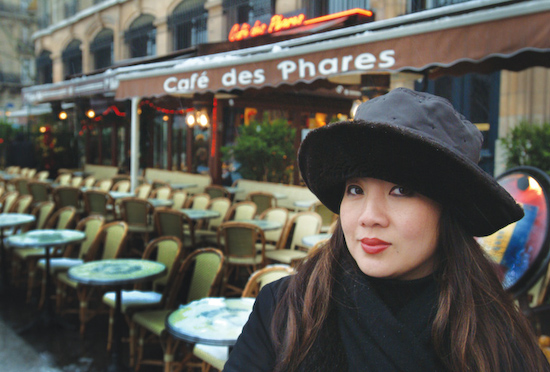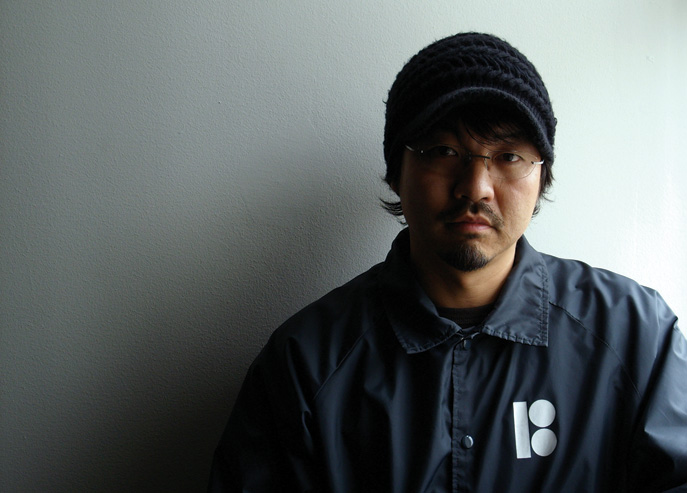By Corina Knoll
For Kim Sunée, life is a summary of homemade meals to linger over, dishes that start with fresh ingredients and end with empty bottles of wine. Like spring pea salad with minted cream. Or wild peaches poached in Lillet Blanc and lemon verbena.
Sunée’s most vivid memories, in fact, center around what was being cooked or eaten at the time. “I might not remember somebody’s name, but I will remember flavors,” the 37-year-old says.
[ad#336]
Which is why her memoir Trail of Crumbs: Hunger, Love and the Search For Home serves double duty as a cookbook. At the end of nearly every chapter, Sunée offers a memory and correlating recipe: “Poppy whistled along, cleaning the crawfish heads, picking the tail meat, and setting it aside for a labor-intensive but most rewarding dish,” she writes before offering a guide to making her grandfather’s famous crawfish bisque.
But it is on the streets of Seoul where Sunée’s earliest recollections actually begin. Abandoned at age 3 by her mother who left her with a fistful of food, she was taken in by police officers who estimated she had been alone for three days. Adopted along with another little girl by a family in New Orleans, Sunée grew up as one of only two Asian children in the community.
By 9 she was dreaming of becoming a poet, and at 14 she enrolled in the New Orleans Center for the Creative Arts. She attended a liberal arts college in Florida and studied abroad in France, then ended up transferring to the University of Nice to study French language and civilization. Through a chance encounter via a mutual friend, Sunée met Olivier Baussan, proprietor of L’Occitane, the lavish perfume and soap company. She lived with him and his daughter in a farmhouse in Provence for several years, leading what sounds like an idyllic life: throwing dinner parties, traveling at a moment’s notice, running a bookshop entirely dedicated to poetry, taking classes at Le Cordon Bleu.
[ad#336]
“I’m very grateful and appreciative for everything that I have had,” Sunée says about her past. “I also realize that you can be given a whole world, but if you don’t have a sense of who you are and what you want and what you can contribute — then it really doesn’t have any resonance.”
All of these ventures are, of course, detailed in Trail of Crumbs, a work that began years ago through journals Sunée kept — although she never knew she’d one day form them into a book. She had, in fact, hoped to publish a volume of poetry. But the notes she’d written to herself in French about her experience in Europe read more like the makings of a memoir.
“There were a lot of things I didn’t write about,” she says. “But then I also feel like had I shied away from certain things, I wouldn’t really have told the story. It’s me in my 20s trying to find my way — with all my flaws.”
And so readers will be privy to Sunée’s heartache in Stockholm, her misgivings about her adoptive mother’s love, her longing for answers about her abandonment, her relationship with Baussan and her constant hunger for a place that feels like home.
“Even when I was younger there’s always been a sense of otherness and not really being at home, or being a stranger and just [having] a certain restlessness,” she explains. “I don’t pretend to say it’s because I was abandoned — I don’t know where I’m from, obviously that’s a big part of it, of identity, but I just think that hunger is metaphorical for a lot of things, for love and a sense of belonging, whether we’re adopted or not. Just trying to figure out where we belong in the world.”
The book has ruffled a few feathers, including some family members, but Sunée says for the most part, those around her have been supportive.
“It made me laugh, cry and want to cook,” says Jan Landess, 40, whom Sunée first met more than a decade ago in France. “I think [the book] has been a necessary part of her existence. Essential to the search for home.”
[ad#336]
Landess, herself an Ohio-born expatriate living in Paris, says she still pines for Sunée’s creations in the kitchen. “When I think of Kim’s cooking, two dishes come to mind: her jambalaya and her marinated miniature eggplant. Before she moved back to the States, we had a party at my place with some of our friends. We made lots of food but the main dish was Kim’s ever so spicy jambalaya. At the beginning someone commented on how spicy the dish was, but soon we were all wiping our foreheads, heaping more onto our plates, fanning ourselves and laughing as our eyes watered.”
Today Sunée continues life as a connoisseur of good eats as the food editor for Cottage Living. She spends her days weeding through exotic food samples like pickled jalapenos and wild hibiscus flowers in syrup, working with recipe developers and experimenting in the magazine’s test kitchen.
Now living in Birmingham, Ala., Sunée’s not yet sure if she’s finally found home. But she adds, “I think I’m getting closer.”
[ad#336]









